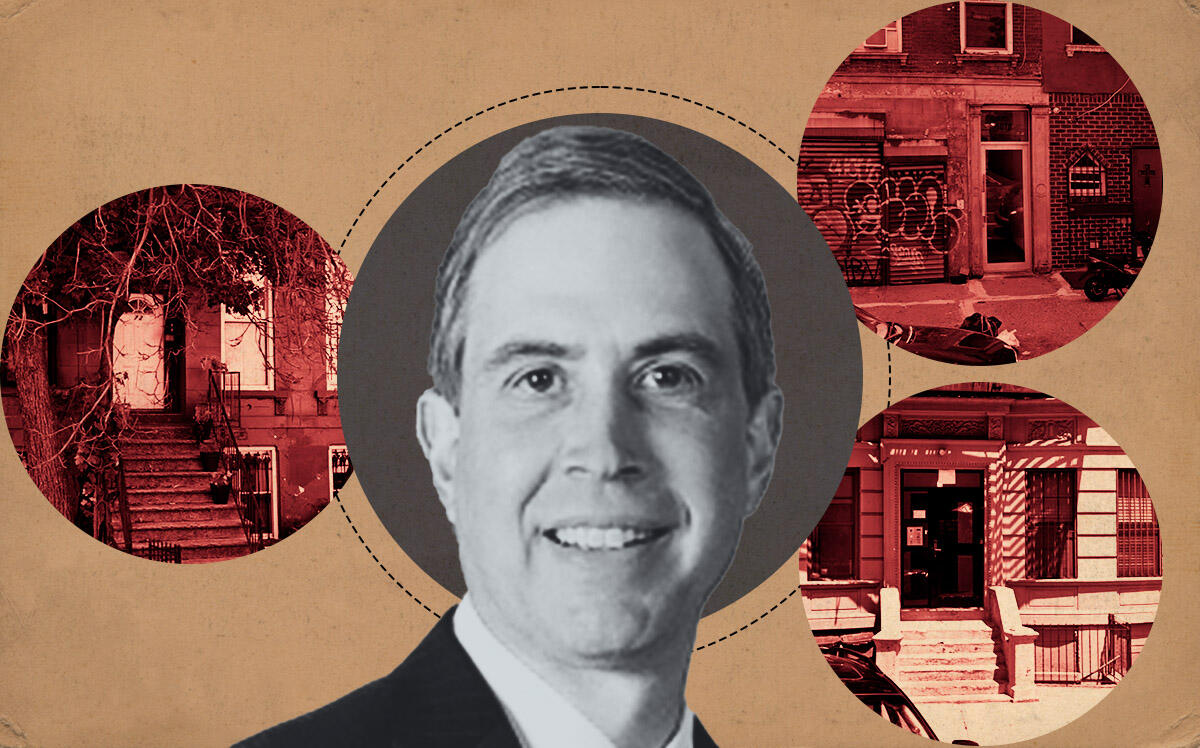Trending
Brooklyn landlord Chaskiel Strulovitch faces another foreclosure battle
After escaping bankruptcy with rescue financing, Strulovitch could lose 3 other properties

Chaskiel Strulovitch isn’t out of the woods following a brutal three-year fight with hardball lender Maverick Real Estate Partners, which tried to foreclose on much of his portfolio.
The embattled Brooklyn landlord faces foreclosures on at least three other properties, including a pair of apartment buildings and, most recently, a brownstone in Bedford-Stuyvesant.
All three properties are also entangled in a messy, five-year-old federal lawsuit in which a group of Israeli real estate investors alleged that Strulovitch engaged in a “Bernie Madoff-style” scheme that caused them over $90 million in damages. That case is now in arbitration, according to court filings.
But as Strulovitch battled it out in federal court, his lenders noticed other issues.
In January of last year, Flushing Bank filed a foreclosure suit against Strulovitch alleging that he and other investors failed to make interest payments on a $850,000 loan. The financing, on a mixed-use rental property at 1078 DeKalb Avenue in Bedford-Stuyvesant, went into default in August 2020, according to Flushing Bank, which now seeks to appoint a receiver.
A year later, Webster Bank — through its predecessor, Sterling National Bank — filed a lawsuit against Strulovitch over 945 Park Place, a 14-unit apartment building in Crown Heights. The lender alleges it extended Strulovitch a $2.7 million loan but he never made any payments.
Two weeks ago, Webster Bank filed another suit, this time seeking to foreclose on a three-story brownstone at 74 Van Buren Street in Bedford-Stuyvesant, alleging that the landlord defaulted on interest payments on an $800,000 loan originated in 2014. The loan went into default on June 15, the bank alleges. Strulovitch bought the property in 2012 for $315,000, records show.
The latest foreclosure attempt comes weeks after Strulovitch concluded a bankruptcy battle for the ages — even by New York City real estate standards.
In 2017, lender Maverick Real Estate Partners sought to foreclose on about 33 of Strulovitch’s properties throughout Brooklyn, including in gentrified neighborhoods Williamsburg and Carroll Gardens. New York-based Maverick, which had acquired the loans originated by other lenders, alleged that Strulovitch concealed the true ownership of the properties from a real estate investor who was seeking to avoid his creditors.
Strulovitch halted the foreclosures by putting the properties in front of White Plains bankruptcy judge Robert Drain, whose courtroom was seen by some in the industry as a debtor-friendly venue.
Nine of the properties sold at auction earlier this year, while Strulovitch managed to maintain control of several others thanks to costly rescue financing. The nearly five-year saga over control of the portfolio finally ended in May.
Flushing Bank declined to comment. Neither Webster Bank nor Strulovitch could be reached for comment.




